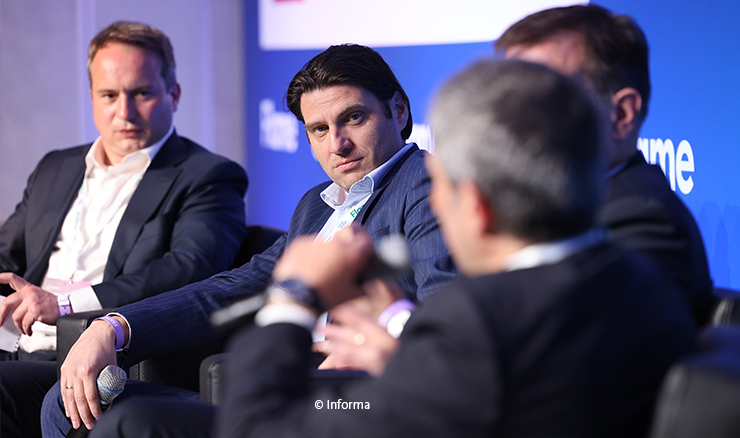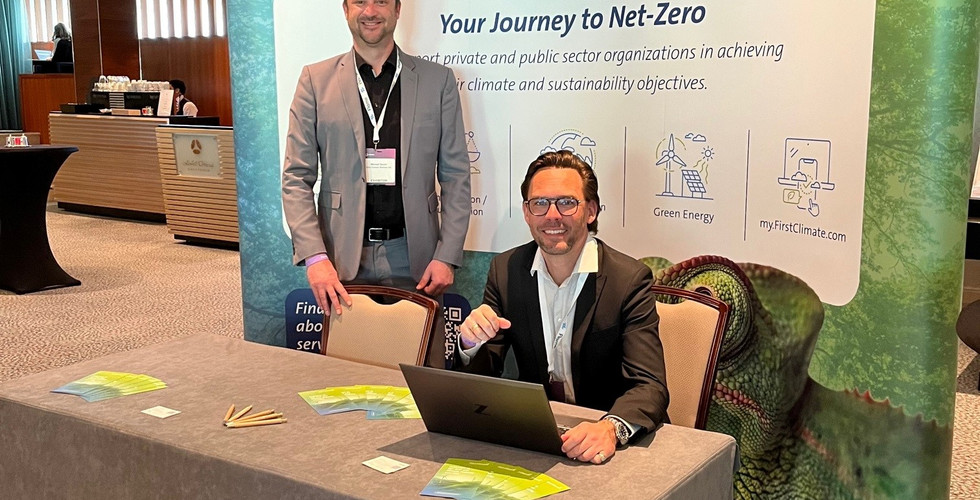Sustainable Energy Supply and Voluntary Climate Action
- FC-Newsteam
- May 24, 2023
- 3 min read
First Climate COO Mike Hatert discussed recommendations for action for the gas industry at the Flame Conference
The energy supply sector in Europe is facing major changes. The question of how the global energy transition can be advanced and how the future supply can be implemented in the most climate-friendly way possible was also the focus this year at Flame, a conference for the international gas industry in Amsterdam. Experts from various industries discussed possible solutions for the energy sector. First Climate COO Mike Hatert was also present, and participated in a high-level panel discussion, which highlighted the role of carbon markets and EU regulation in relation to the industry.

Hatert, a member of the board of First Climate, primarily participated in a panel discussion on “The Carbon Market, European Regulation and the Impact on Gas”. He was joined by Laurent Segalen, Special Adviser to the Board, ICVCM, und Gunnar Steck, Executive Advisor Wholesale Markets with Eurogas, where they emphasized various tools related to voluntary climate action. Hatert focused on the opportunities that these instruments offer and further emphasized the fossil fuel energy sector’s particular responsibility regarding climate change.
“In the future, no company or industry can afford to wait on the sidelines when it comes to climate protection,” Hatert said. While government regulations could act as an effective tool in making low-carbon fuel sources more attractive through taxes on fossil energy products and increasing demand – these actions are completely removed from the industry's responsibility to initiate decarbonization measures and fund additional climate action, the First Climate COO said. Hatert went on to reference the broad range of services First Climate offers to support companies with these efforts: from carbon footprint calculations to carbon avoidance, reduction, and compensation measures, and all the way to comprehensive carbon reporting. According to Hatert, the identification and implementation of suitable project development and financing models is of particular importance, and First Climate also advises companies on these issues.
Climate-friendly event with First Climate
Beyond the discussion forum on the first day of the Flame conference, energy transition was also a key focus of the event program: the topic of “Sustainability of Energy Supply,” with numerous services centered around the development of low-carbon or carbon-free energy sources such as biogas, naturally occurring gas such as biomethane or hydrogen, were on the agenda this year. Along the same lines, the organizers implemented measures to ensure that the event was held in a climate-friendly manner. In addition, sustainable actions like switching to renewable energy sources for electricity consumption, introducing a purely digital event guide to save paper resources and reducing waste, the event also focused on compensating for the residual emissions that inevitably occur despite collective reduction measures – for example, through the travel arrangements of its visitors.
Supported by First Climate as the event's official decarbonization partner, the organizers of the Flame conference compensate for the event-related carbon footprint by supporting two Gold Standard-certified climate protection projects, thus promoting sustainable development in Africa, namely the Global Safe Water program, which works to improve the supply of drinking water to schools in Nigeria, Kenya and Uganda, and the Uganda Cookstoves project, which is dedicated to distributing energy-efficient cooking stoves to households in Uganda.
About Flame
The largest European gas conference dedicated to decarbonization of the energy system. Three days packed with insights from Europe’s energy leaders on the critical factors affecting the industry: energy security, affordability, and creating low-carbon energy supply.
More information here: https://informaconnect.com/flame-conference/













